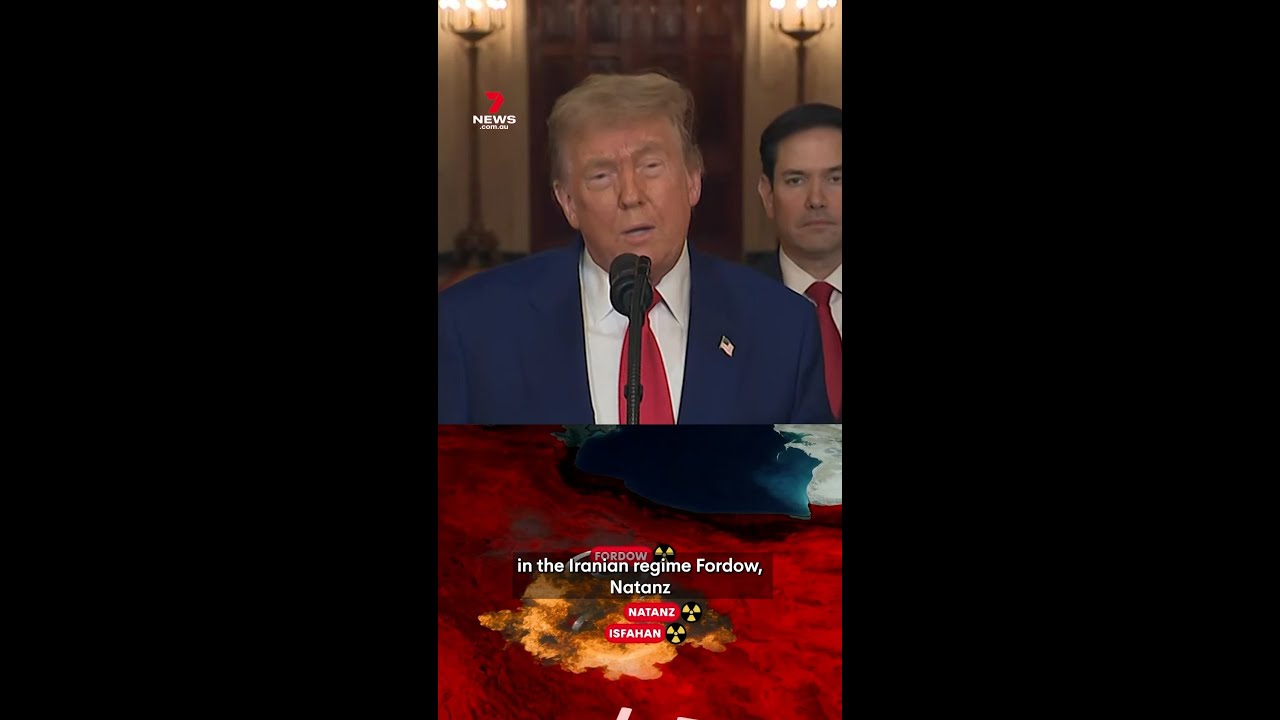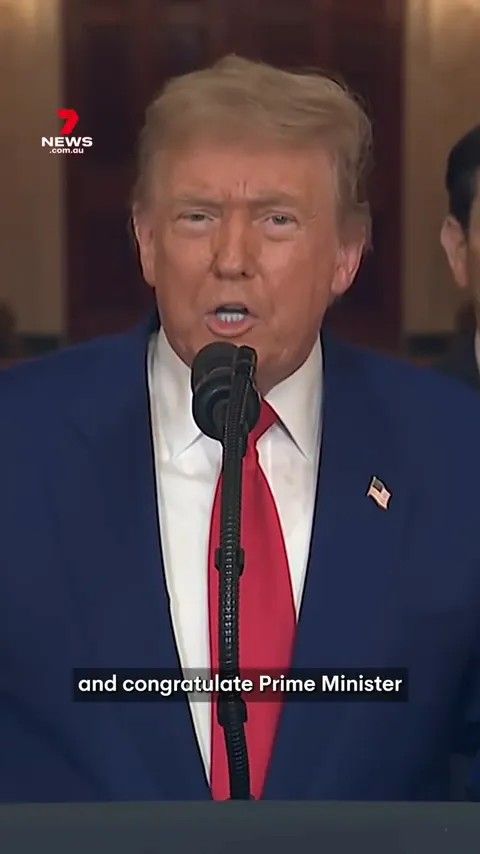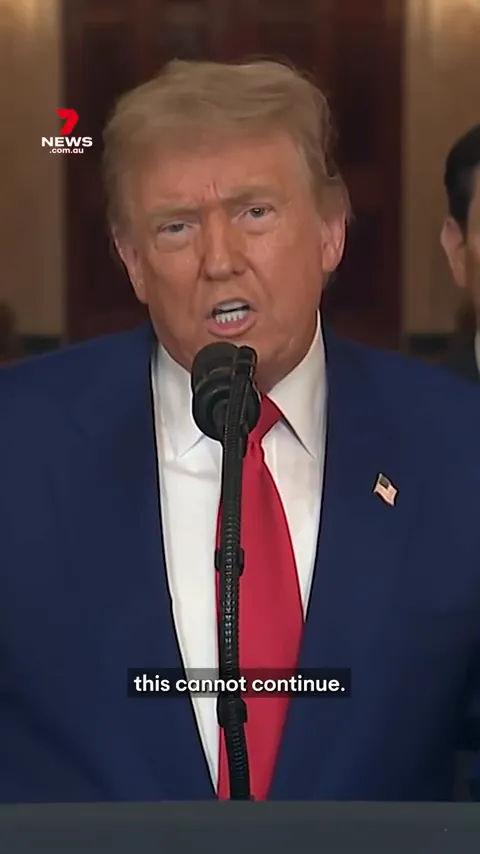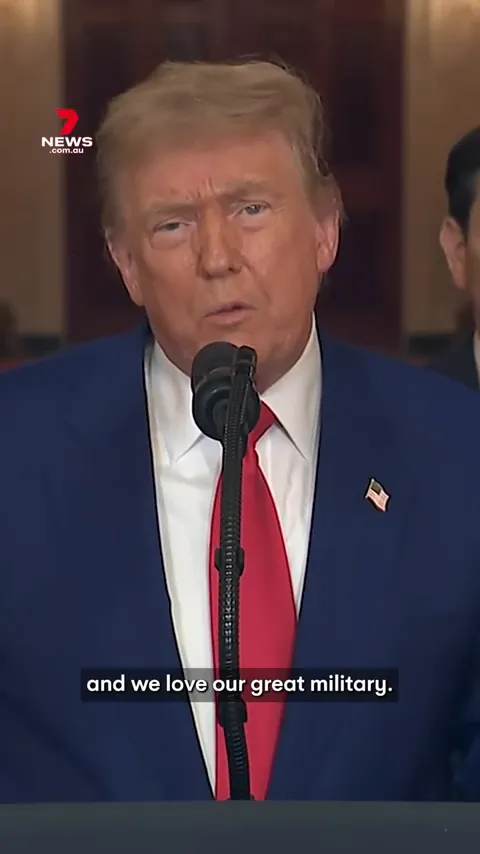Jun 22, 2025
Donald Trump Addresses US Strikes on Iran: A Decisive Military Success

The recent US military operation targeting Iran's nuclear facilities marks a defining moment in the ongoing conflict in the Middle East. Delivered with conviction, former President Donald Trump's address highlighted the precision and effectiveness of the strikes on Iran's key nuclear enrichment sites—Firdo, Natanz, and Esfahan. These actions not only dismantled critical components of Iran's nuclear program but also sent a clear message to the regime about the consequences of continued hostility.
Table of Contents
- Background: The Threat Posed by Iran's Nuclear Program
- The Military Operation: Precision and Spectacular Success
- The Rationale: Confronting Iran’s Hostility
- A Warning and a Call for Peace
- Gratitude and Patriotism
- Frequently Asked Questions (FAQ)
Background: The Threat Posed by Iran's Nuclear Program
For decades, the names Firdo, Natanz, and Esfahan have been synonymous with Iran’s nuclear ambitions. These facilities formed the backbone of a nuclear enrichment enterprise that, according to Trump, represented a "horribly destructive" threat. Iran’s nuclear program has long been a point of international concern, given its potential to destabilize the region and empower the world’s foremost state sponsor of terrorism.
The Military Operation: Precision and Spectacular Success
In his address, Trump proudly reported that the strikes were a "spectacular military success," stating that Iran's key nuclear enrichment facilities had been "completely and totally obliterated." The operation was characterized by unprecedented precision and speed, with Trump emphasizing that no other military in the world could have executed such a mission.
He underscored the complexity of the strikes, noting that the targets hit that night were the "most difficult of them all, by far, and perhaps the most lethal." The success was attributed to the extraordinary skill of American pilots and military strategists, including the chairman of the Joint Chiefs of Staff, General Dan Keane, and the Secretary of Defense, Pete Hegseth, who was slated to provide further details in a Pentagon press conference.
Collaboration with Israel
Trump also acknowledged the crucial partnership with Israel, highlighting the close cooperation with Prime Minister Benjamin Netanyahu and the Israeli military. He praised their teamwork as perhaps unparalleled, crediting it with significant progress toward neutralizing the nuclear threat to Israel.

The Rationale: Confronting Iran’s Hostility
For 40 years, Iran has openly expressed hostility towards the United States and Israel, epitomized by the chilling slogan "death to America, death to Israel." Trump recalled the devastating human cost of this animosity, including thousands of American casualties caused by roadside bombs and other acts of terror orchestrated by Iran, especially under the command of General Qasem Soleimani.
"We lost over a thousand people and hundreds of thousands throughout the Middle East and around the world have died as a direct result of their hate."
Determined to halt this cycle of violence, Trump declared his resolve not to allow such attacks to continue, positioning the strikes as a decisive step toward ending Iran’s aggressive posture.
A Warning and a Call for Peace
While emphasizing the success of the operation, Trump made it clear that the strikes were not the end of the campaign. He issued a stern warning to Iran, stating that if the regime does not choose peace, future attacks will be "far greater and a lot easier." He reminded the world that many other targets remain, which can be neutralized swiftly and with precision if necessary.
Trump’s message was unequivocal:
"There will be either peace or there will be tragedy for Iran far greater than we have witnessed over the last eight days."

Gratitude and Patriotism
In closing, Trump expressed profound gratitude to the brave American patriots who executed the mission, the Israeli military, and the leaders who coordinated the operation. He invoked a spiritual tone, thanking God and asking for protection over the military forces. His concluding remarks extended blessings to the Middle East, Israel, and America.

Frequently Asked Questions (FAQ)
What were the targets of the US strikes in Iran?
The strikes targeted three key nuclear enrichment facilities: Firdo, Natanz, and Esfahan, which are central to Iran's nuclear program.
Why did the US carry out these strikes?
The objective was to destroy Iran’s nuclear enrichment capacity and halt the nuclear threat posed by Iran, which is considered the world's leading state sponsor of terrorism.
How successful were the strikes?
According to Donald Trump, the strikes were a spectacular military success, completely obliterating Iran's key nuclear facilities.
What is the US stance on future actions against Iran?
The US warned that if Iran does not pursue peace, future attacks will be more extensive and easier to execute, with many additional targets remaining.
How did Israel contribute to the operation?
Israel, led by Prime Minister Benjamin Netanyahu and its military forces, worked closely with the US, playing a significant role in neutralizing the threat to Israel.
Will there be more military actions in the Middle East?
While the hope is that further military interventions will not be necessary, the US has made it clear that it is prepared to act swiftly and decisively if peace is not achieved.